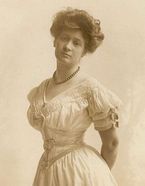
All this made me reflect, as I do from time to time, on the pros and cons of music competitions. And in a sudden epiphany, an entirely new way of running a music competition occurred to me. Permit me to share it with you.
My competition would be open to any musician in the world under the age of 30, who has already won a second- or third-place prize at a major competition, but has never won a first prize. First-prize winners would be excluded. (I’ll explain why a little further on.)
The results would then be tabulated (by an independent tabulator, sworn to secrecy), and the top three would be announced as prize-winners.
So why, in a world full of music competitions, do we need another one – constructed so strangely?
It’s my belief that one of the forces that holds classical music back – that makes it so conservative, tradition bound and slow to change – is the thoroughness with which each successive generation is “policed” by its elders. In other words, most music competitions are structured so that people aged 40 and up sit in judgment of people in their 20s. Young classical musicians don’t get much opportunity to decide for themselves who are the best artists of their generation. That’s decided by gatekeepers at least a generation older.
So what effect would this radically new way of doing things have? What would happen if young artists were given the opportunity to select the voices of their own generation? (This is pretty much what constantly goes on in the popular music world, by the way.) I don’t know, exactly – but I suspect that something would happen: new aesthetic or artistic values would emerge. The glacical pace of change that’s a trademark of the classical music world would accelerate noticeably.
And whatever those new values were, they would be the authentic values of the generation, not indoctrinated values belonging to and enforced by an older age-group. That’s why young artists who had won first prizes at international competitions would be excluded from my competition. The first-prize winners in the big competitions are usually the young artists who have most successfully “bought in” to the status quo.
Of course, it’s quite possible that older generations would be horrified by the results of a competition that gave young people agency to judge their peers. But that might not be such a bad thing. Real change is often controversial and disruptive – and real change is something the classical music world desperately needs right now.
© Colin Eatock 2011
 RSS Feed
RSS Feed

